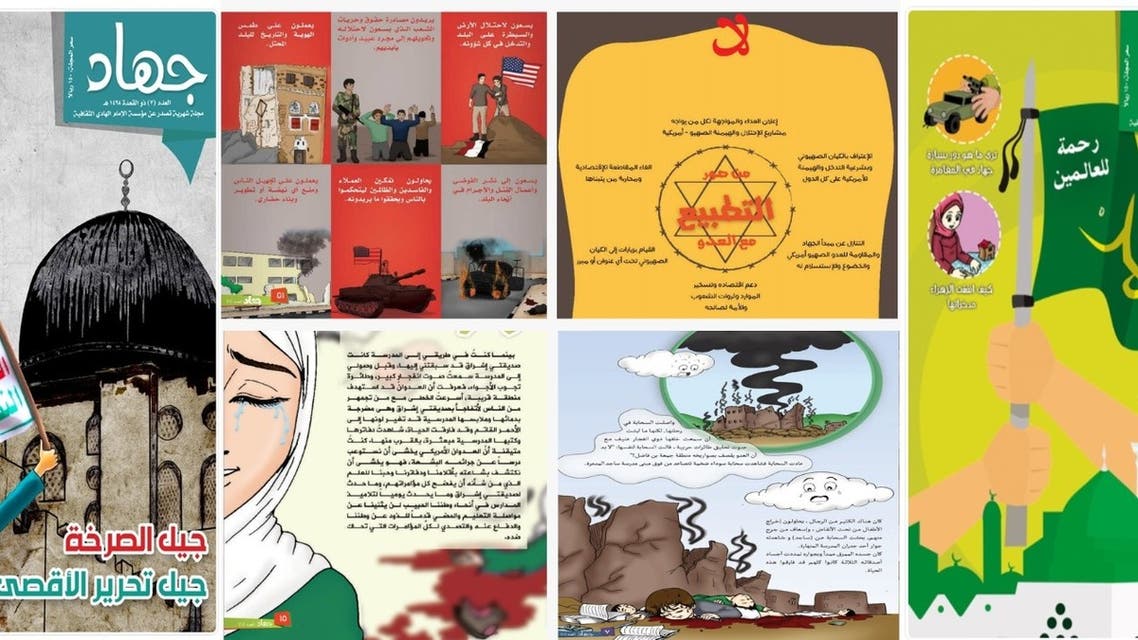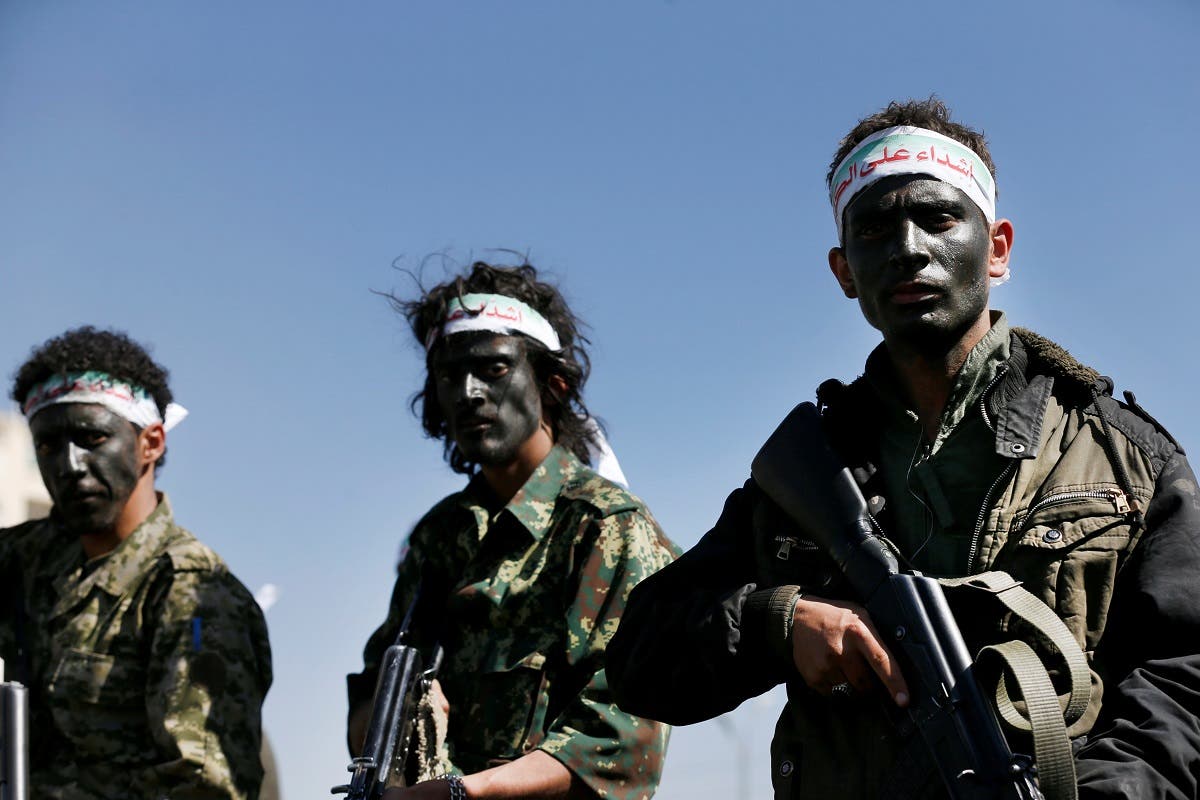Al-Arabia – Iran-backed Houthis have targeted the mainstream education system in Yemen by spreading its rhetoric of hate in textbooks circulated in the curriculum designed to influence the country’s children, a study published by the Institute for Monitoring Peace and Cultural Tolerance in School Education (IMPACT-SE) has revealed.

The Middle East educational watchdog’s report reviewed materials produced by the Houthis for use in their network of summer camps and extra-curricular classes as well as take-home materials, including a monthly children’s ‘educational’ magazine called ‘Jihad’.
For all the latest headlines follow our Google News channel online or via the app.
The magazines feature graphic images of deceased children, inserted to indoctrinate to hate the opponents of the Houthis.
In the educational material, the US is characterized as a universal evil and described as the “Greater Satan” responsible for all the atrocities in the world – including the creation of ISIS – while children are taught to chant “death to America.”
Researchers say that the materials feature severe anti-Semitic rhetoric, including Holocaust-related imagery such as a yellow Star of David and barbed wire used in lessons on how to oppose all forms of normalization with the “Zionist–American hegemony.”
Israel is referred to as a “cancerous tumor.”
In one cartoon strip, a young boy and his friends attack an enemy ship, which carries the flags of Saudi Arabia and the UAE.
In the review, Eldad Pardo, IMPACT-se’s director of research, said the report on the educational materials constitutes “one of the most concerning of IMPACT-se’s assessments of Middle Eastern curricula.”

Newly recruited Houthi fighters parade before heading to the frontline to fight against government forces, in Sanaa, Yemen January 4, 2017. (Reuters)
“The combination of the textbooks’ graphic depiction of deceased children, prevalent hatred, glorification of violence as the only solution for resolving conflicts, the indoctrination of children to sacrifice their lives, and the overall Manichean worldview, run contrary to UNESCO standards of peace and tolerance and are unacceptable in any society.”
“The research provides a rare glimpse into education in areas under the control of a leading Iranian proxy organization. It acts as a case study for and sheds light on the worldview and tactics of Iran’s Revolutionary Guards as it works to recruit and coordinate its client organizations across the Arab world.”
Pardo said the Houthi educational materials offer a window into the inner workings of the Iranian influence in the Arab world.
“The connection to Iran—the power behind the Houthis—is downplayed in the examined educational materials. Instead, Iran is presented as one of many allies and partners victimized by the West.”
IMPACT-se’s review said, until 2015 when Houthi rebels took over the capital of Sanaa, “Yemen was considered an exception to the disappointing developments of the Arab Spring”, noting that Yemen was relatively “stable and hopeful,” with regional specialists expecting it to become the first Arab nation that adopts the federal model.
However, things changed when Iran, recognizing the opportunity to expand its influence, implemented its militia doctrine in Yemen. According to this doctrine, Iran aims to create loyal militias wherever possible in the region and “education became a focal point for Tehran’s empire builders,” according to IMPACT-se.
The organization’s deputy CEO, Arik Agassi, said that he rhetoric in their textbooks “leave no room for interpretation as to their true desires and intentions for the future of Yemen and the region, through a violent and uncompromising struggle for without Jews, Israel and American–Saudi influence.”
Considering the fact that Iran maintains part of its regional influence through education, the education model used by the Houthis in Yemen may offer further insights into “a problem that looms large in the Middle East and beyond,” the report noted.
IMPACT-se CEO Marcus Sheff concluded that the findings “are a worrying insight into the violent Houthi mindset and an extreme example of how education can be weaponized to perpetuate conflict.”
 Shabtabnews In this dark night, I have lost my way – Arise from a corner, oh you the star of guidance.
Shabtabnews In this dark night, I have lost my way – Arise from a corner, oh you the star of guidance.


